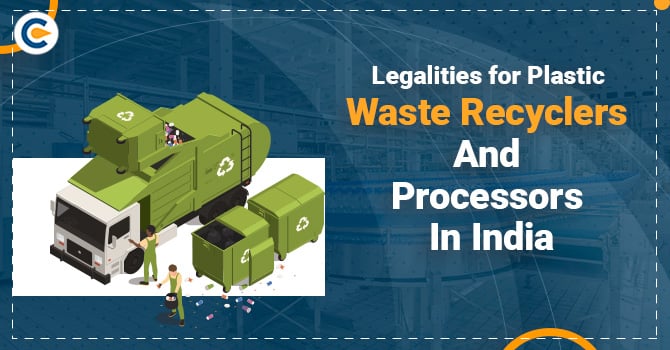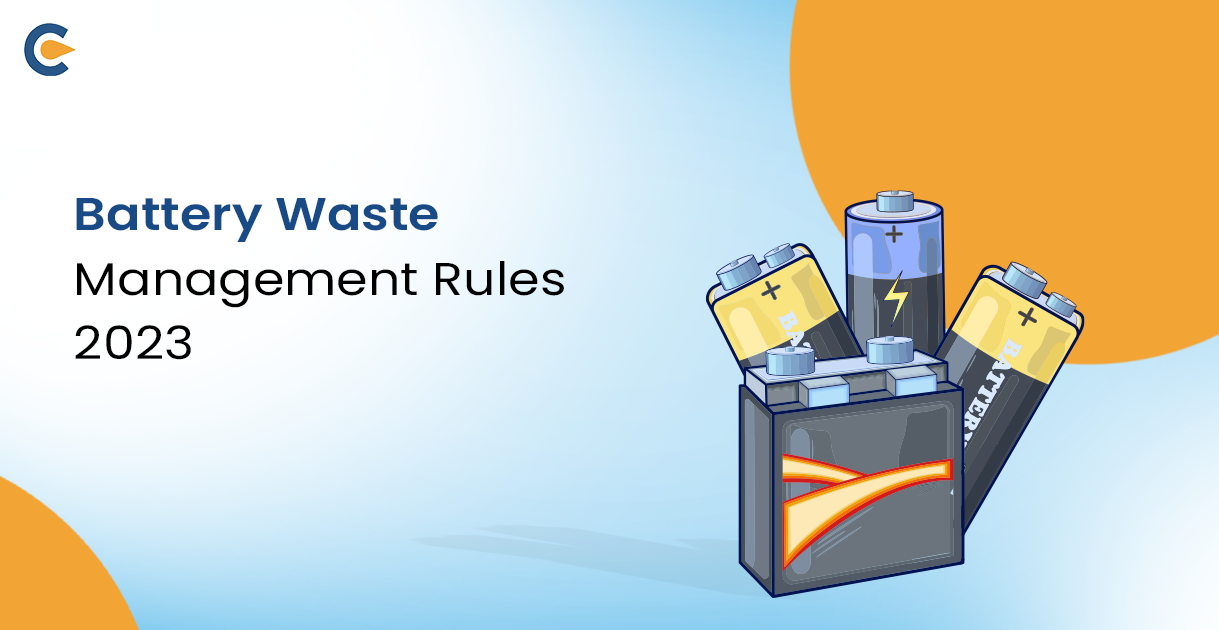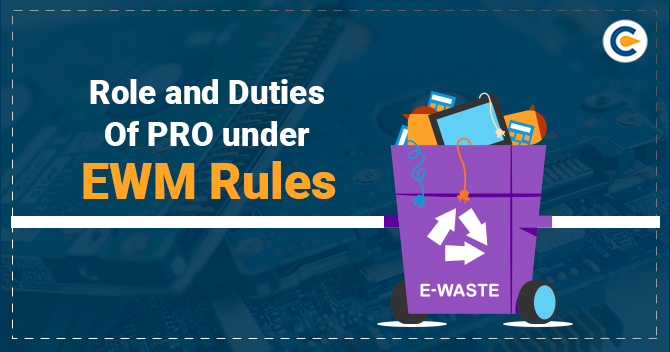Plastic recycling refers to the process of recouping scrap or waste plastic and reprocessing the same into practical and functional products. This activity is regarded as a plastic recycling process. The objective of recycling plastic is to minimize ever-rising plastic pollution while putting less stress on virgin materials to produce new plastic goods. This approach aids in preserving valuable resources and diverts plastic wastes from landfills or oceans. The PWM rules, 2016 seek to support the same concept and provide PIBOs (Producer, Importers, and Brand Owners), including plastic waste recyclers, to acquire specific consent from SPCB. This write-up briefs out the underlying legalities for Plastic Waste Recyclers and processors in India.
What Plastics Are Recyclable?
Plastics are lightweight, durable, and low-cost materials. They can be molded into various products that find utilizations in various applications. Every year, more than 420mn tonnes of plastics are produced globally. As a result, the reuse, recouping, & recycling of plastic are significant.
Following are the common types of plastics that are extensively used for different purposes:
PS (Polystyrene) – Ex: plastic cutlery, foam hot drink cups, yogurt, and containers
PP (Polypropylene) – Ex: take-out food containers, lunch boxes, ice cream containers.
LDPE (Low-density polyethylene) – Ex: garbage bags & bins
PVC (Plasticised Polyvinyl chloride or polyvinyl chloride)—Ex: cordial, squeeze or juice bottles.
HDPE (High-density polyethylene) – Ex: shampoo packs or milk bottles.
PET (Polyethylene terephthalate) – Ex: fruit juice & soft drink bottles.
Mandatory Licenses and Permits for Plastic Waste Recyclers and processors
Following are the common licenses and registration required to set up a legally viable plastic recycling and processing unit in India
Business registration/Incorporation certification
Company registration or Incorporation certification is the first step in setting up a legalized Plastic waste recycling and processing unit in India. It enables companies to stay compliant and organized on the following grounds:
- Management/Decision Making
- Time-based compliances
- Financial disclosure
- Drawing agreement with third-parties
- Appointing top officials
There is a plethora of business models accessible to business owners under different legislations. These include;
- OPC (One person company) – Companies Act, 2013
- Partnership Firm: Partnership Act, 1932
- Private Limited Company: Companies Act, 2013
- Limited Liability Company: LLP Act, 2008[1]
Each business structure mentioned above adheres to different pre and post-incorporation compliances. So, it is ideal to get in touch with an experienced professional before initiating registration formalities.
Consent from State Pollution Control Board
Entities that come under the ambit of PWM Rule, 2016 are obligated to secure the following consents from State Pollution Control Board.
- CTE: Consent to Establish: Consent to Establish serves as a primary clearance, and it is required to be secured before setting up any unit, facility, process, and plant.
- CTO: Consent to Operate: The applicant can apply for this consent after installing the plant/unit and mandatory pollution control system.
Consent under Plastic Waste Management Rules, 2016
Consent under Plastic Waste Management rules, 2016 is a legal compulsion for plastic recyclers and processors. The applicant needs to file an application in form-II with the competent authority to avail such consent.
Form-II entails the following fields that must be filled by entities seeking to operate as a plastic waste recyclers or processor.
- Production facility’s Name and address
- Contact info of authorized personal
- Commencement date of the production facility
- Number of workers serving the facility
- Validity status of consent granted by SPCB under Water (Prevention & Control of Pollution) Act, 1974 and Air (Prevention & Control of Pollution) Act, 1981, respectively.
- Flow diagram reflecting the manufacturing process for each product
- Products detail & production capacity in MTA
- Quantum of waste generated during processing
- Transportation & Waste collection
- Particular of waste disposal in term of quantity, type and category.
- Authorization status of the disposal unit
- Analysis fining of wastes generated during recycling or processing
- Information relating to plastic waste procurement via import, sale, or auction for use as raw material.
- Occupational safety & health aspects
- Declaration relating to the availability of mandatory pollution control measures to comply with emissions standards
- Declaration for PWM rules compliances fulfillment
- Declaration for the presence of conditions of material being handled or processed posing hazardous impact on the environment
- Declaration for the presence of conditions of material being handled or processed has capabilities to yield another material.
Mandatory Enclosures to Form II
Applicants are required to file Form II along with the given document:
- Proof evidencing the sale executed in more than two states (Tax invoice/GST etc.)
- Valid consent is availed under Air & Water Act
- EPR Action Plan
- The document conferred by ULB/competent state authority relating to the involvement of PIBO/WMA (as applicable)
- Registration/Certificate conferred by State pollution board/PCC
- Agreement of PIBO/WMA with authorized Plastic waste processor (as applicable)
- Agreement of PIBO with WMA (as applicable)
Factory license
Factory license is granted under the Factory Act, 1948. Every production unit (including plastic waste recyclers and processor) is mandated to avail consent under this Act, broadly known as factory license. One can apply for this license via the government portal of labor department.
Fire NOC
Fire NOC is conferred by the State’s Fire department after on-site inspection of the premises for fire safety measures and equipment installed therein. The mechanism installed should comply with all the norms laid out for fire safety underpinned by the BIS. Therefore, a Fire NOC is a legal compulsion to ensure the safety of workers and the working premises against fire-related mishaps.
GST Registration
Following is the list of businesses that are mandated to secure GST registration regardless of their turnover:
· Having Annual Turnover of over 40 lakhs (Rs 10 lakhs for N-E states, HP, Jammu, and Kashmir, & Uttarakhand)
- Input Service Distributor/ Casual taxable person
- Non-resident taxable person
- Inter-state supplier of commodities & services
- Suppliers of commodities via an e-commerce portal
- Taxpayers falling under reverse charge mechanism
- Online data access or retrieval service provider
- TDS/TCS deductor
Conclusion
The legislation for the plastic sector is ever-evolving and more stringent than any other sector. Plastic waste recyclers and processors must comply with countless norms cited under PWM rules and other legislation. To stay in compliant, these entities need to underpin a formal system in place to keep the tab on the ever-changing norms and guidelines. Keeping in touch with SMEs or field experts is another sound strategy to keep abreast of business and industry-related compliance. Corpbiz is a reputed legal and licensing firm in India committed to rendering end-to-end solutions to clients willing to undertake the certain business undertaking.
Read our Article:Plastic Waste Management Registration for PIBOs











